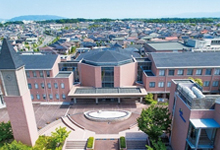A research team led by Associate Professor Satoshi Shinsako of Kio University, in collaboration with Mukogawa Women's University and Keio University, is investigating the relationship between media viewing time, media preference, perceptual bias, and fine motor function of school children.As a result, it was found that media viewing was not related to perceptual bias or fine motor function.On the other hand, an important relationship was shown between perceptual bias and fine motor function.
Viewing media such as TV, DVD, the Internet, and games is known to have positive and negative effects on children's cognitive development (attention, language, memory, learning, executive function) and motor development.However, the effect of media viewing on children's perceptual bias (the tendency to be biased toward either visual or tactile sensation) and fine motor function (dexterity of the hand) was unclear.
In this survey, we measured media viewing time, media preference, perceptual bias, and fine motor function in 6 neurotypical children aged 12 to 100 years.As a result, there was a correlation between the increase in age and the increase in media viewing time, and the increase in media viewing time and the increase in media preference.However, no correlation was found between media viewing time / media preference and perceptual bias / fine motor function.On the other hand, the stronger the bias toward vision (visual bias), the lower the fine motor function was observed, indicating that children with relatively low fine motor function had stronger visual bias.
Media viewing is said to have an adverse effect on children's development, but in recent years it has been reported that interventions using active video games are effective for movement disorders such as cerebral palsy and developmental coordination disorder.These suggest that the use of media, not the media itself, is important and requires further research.
Paper information:[Brain Sciences] Manual dexterity is not related to media viewing but is related to perceptual bias in school-age children


